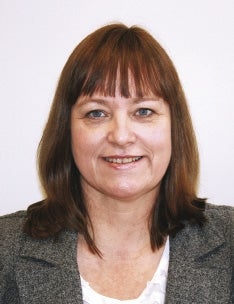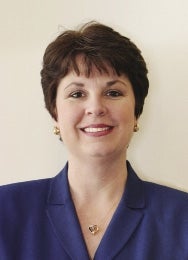Soft skills a shortcoming of young professionals?
In what could be a classic display of generational dissonance, area employers are focusing on what they say is a shortcoming of the new generation of professionals, akin to the skills gap advanced manufacturers have lamented in recent years.
Business and education leaders in MetroWest say a so-called “soft skills gap,” encompassing a lack of communication skills and business etiquette among recent college graduates, is as confounding to professional services firms as the manufacturing skills gap is to employers in that economic sector.
Bob Fields, owner of Framingham marketing agency CommCreative, has been shocked several times by this gap. A young employee might send a text message in the middle of a meeting with a million-dollar client, he said. Once, a member of his staff eschewed silverware during a dinner with a major client and instead ate with his hands.
“I mean, it’s amazing that you can come out of grad school and not have basic business etiquette,” Fields mused.
Lest Fields be called a curmudgeon, it’s important to note that he’s doing something about what he views as a major problem for him and other companies. This month, Fields planned a meeting to address generally accepted business behavior with the junior members of his staff in a way that doesn’t target specific employees. And outside the office, Fields is involved in a career skills training program that teaches workplace etiquette to students at Framingham State University.
“You want them to have basic business etiquette and skills,” Fields said.
With several staff members in their 20s and 30s, and a couple of young family members of the same generation, Fields is sympathetic. He believes pervasive technology (read: iPhone addiction) has eroded traditional communication, dragging down with it general business acumen.
Research measures tech toll on social skills
It’s a topic that’s been studied at length by researchers attempting to measure how technology impacts the development of social skills among children. One such study conducted at the University of California at Los Angeles (UCLA) was published this summer. It measured the ability of two groups of sixth-graders to read social skills. One group, of 51 students, spent five days at overnight camp with no access to television, computers or mobile phones. Meanwhile, a control group continued using those devices as they normally would. Following the stint at camp, the first group showed significant improvement in reading non-verbal facial emotions compared with the second group.
Given that today’s 20-somethings are technology “natives,” having learned it from childhood, a fact that benefits companies in many ways, area employers may also be experiencing the downside of their digitally-driven young charges.
A dose of workplace reality for students
Dawn Ross, head of career services at Framingham State, said anecdotal evidence supports the research. She sees the way technology reduces human interaction on campus. If students are waiting in a hallway for a class to begin, they’re glued to their smartphones, Ross said.
For this reason, FSU has worked with the MetroWest Chamber of Commerce and area employers such as Fields to introduce students to the reality of the workplace, where bosses have a more traditional approach to communication. That may clash with recent graduates’ relationship with technology, Ross said.
“They’re more apt to think that it’s OK to type notes while the boss is talking,” Ross said. “Students need to know that you really have to recognize the audience you’re dealing with.”
Mock interviews reveal that some students have trouble maintaining eye contact, according to Ross. Others struggle with the idea of rigid work schedules. Still, Ross believes students, by and large, possess a strong work ethic, and have already honed customer-service skills at retail jobs. Plus, she said, they have an honest desire to learn about workplace etiquette.
Bonnie Biocchi, president of the MetroWest Chamber of Commerce, agreed. But she thinks today’s graduates are a little misguided. This is evident when chamber leaders meet with students a few times each semester to teach classes on professionalism. According to Biocchi, many students think that typing on a smartphone during a meeting is a form of multitasking that a boss will view favorably.
“What we were hearing from the millennials was, ‘We think we’re doing it right,’” Biocchi said of students in one of the classes.
Perhaps they are. Workplaces rely on social media as part of their marketing strategies today, and clients and business partners often expect instant communication, both of which young tech-savvy workers are well-suited for. Biocchi recognized that technology has revolutionized the workplace, and that some of the differences between older and younger workers are purely generational. But there are certain business traditions that she doesn’t expect will be easily deleted.
“I don’t think anything is really going to replace the personal relationship, because all humans crave some degree of that,” Biocchi said. “Young people who are successful are out there meeting people and growing relationships, and they’re the ones that are leading companies.”
Has the gap been around a while?
While the recent proliferation of technology may be compounding the soft skills problem, it’s actually been around for a while, according to Catherine Usoff, dean of the Graduate School of Management at Clark University in Worcester. While she was teaching accounting at Bentley University in Waltham in the late 1990s and early 2000s, Usoff studied the need for better communication skills among accountants. Prompted by calls from accounting professionals, Usoff and a colleague, Dorothy Feldman, published two papers on the subject.
The papers cite complaints from the accounting world about young graduates’ lack of communication skills dating back to the early 1980s. Usoff and Feldman wrote that this highlighted a need for a stronger focus on honing verbal and written communication skills as part of accounting coursework.
At the same time, Usoff began requiring students to write article summaries on accounting topics. Students were resistant, she said. But she explained to them that their accounting skills were of no use if they weren’t effective communicators.
Adoption of technology has made the issue more important for accountants. Because technology streamlines some accounting processes, Usoff said that affords young accountants more time to work face-to-face with clients.
“What firms are finding is they’re putting newer employees in front of clients earlier, so they really need someone that they can feel confident about putting in front of a client,” Usoff said.
Clark dean: It’s the little things
Little details matter too, Usoff said. She recently conducted an orientation program for incoming graduate students. They were required to turn in a mock case analysis, and one group spelled the organization’s name incorrectly. Usoff used it as a teachable moment, telling her students that what may seem like a minor gaffe can make a bad impression on a client.
Usoff thinks students’ laid-back approach to the workplace is as much a product of today’s public education system as it is a product of technology. Public schools focus more on critical thinking and originality of thought, and less on standardization and rote memorization, Usoff said. And she thinks that’s generally a good thing.
So when she finds herself explaining to students who have gone through the system that traditional business etiquette is vital, she admits she feels a bit hypocritical. She can also imagine her children, ages 19 and 24, arguing with her that intelligence and talent should trump all. But she pushes back.
“I tell them, ‘The people you’re going to work for are like me’.’” n













0 Comments